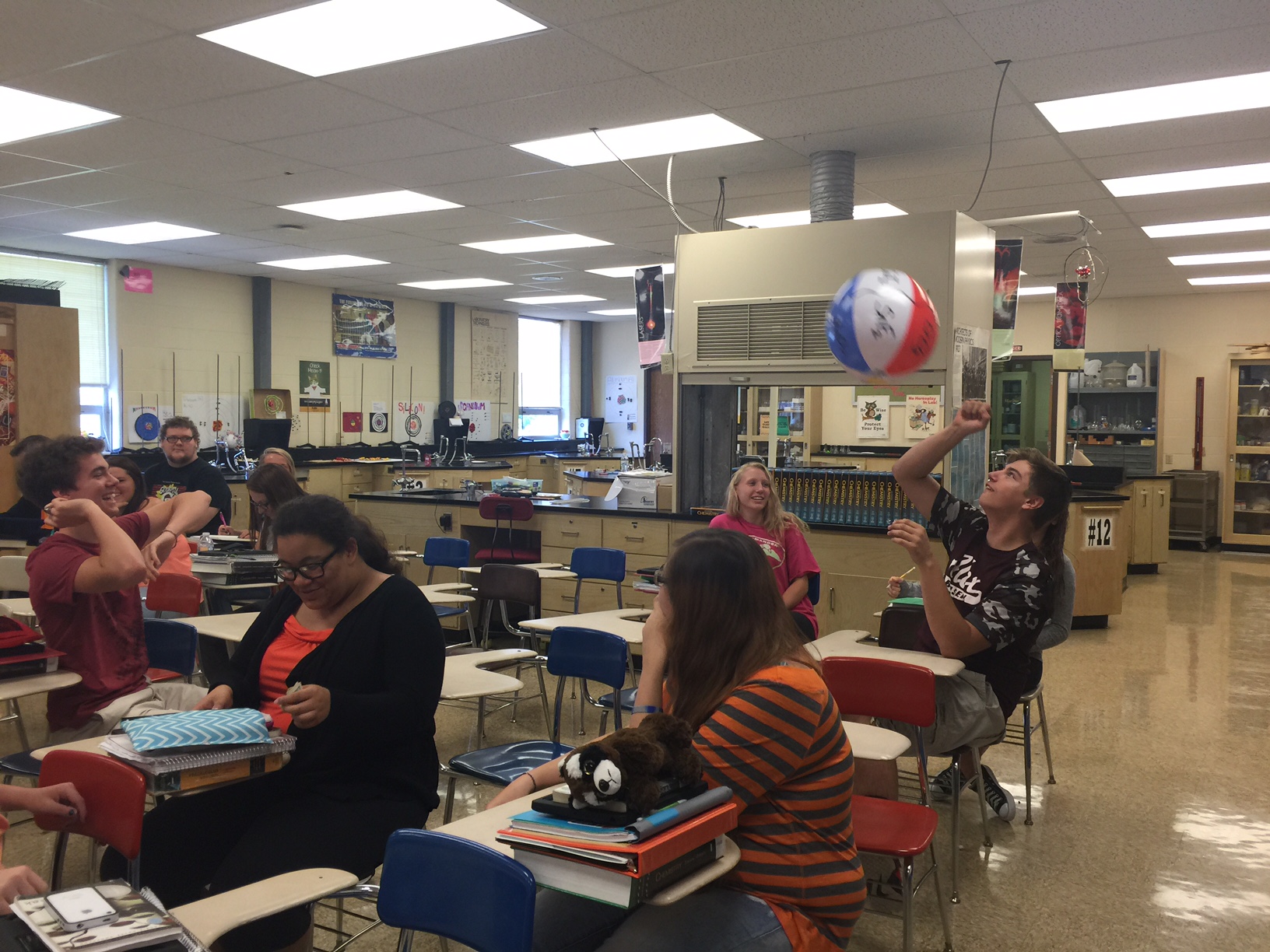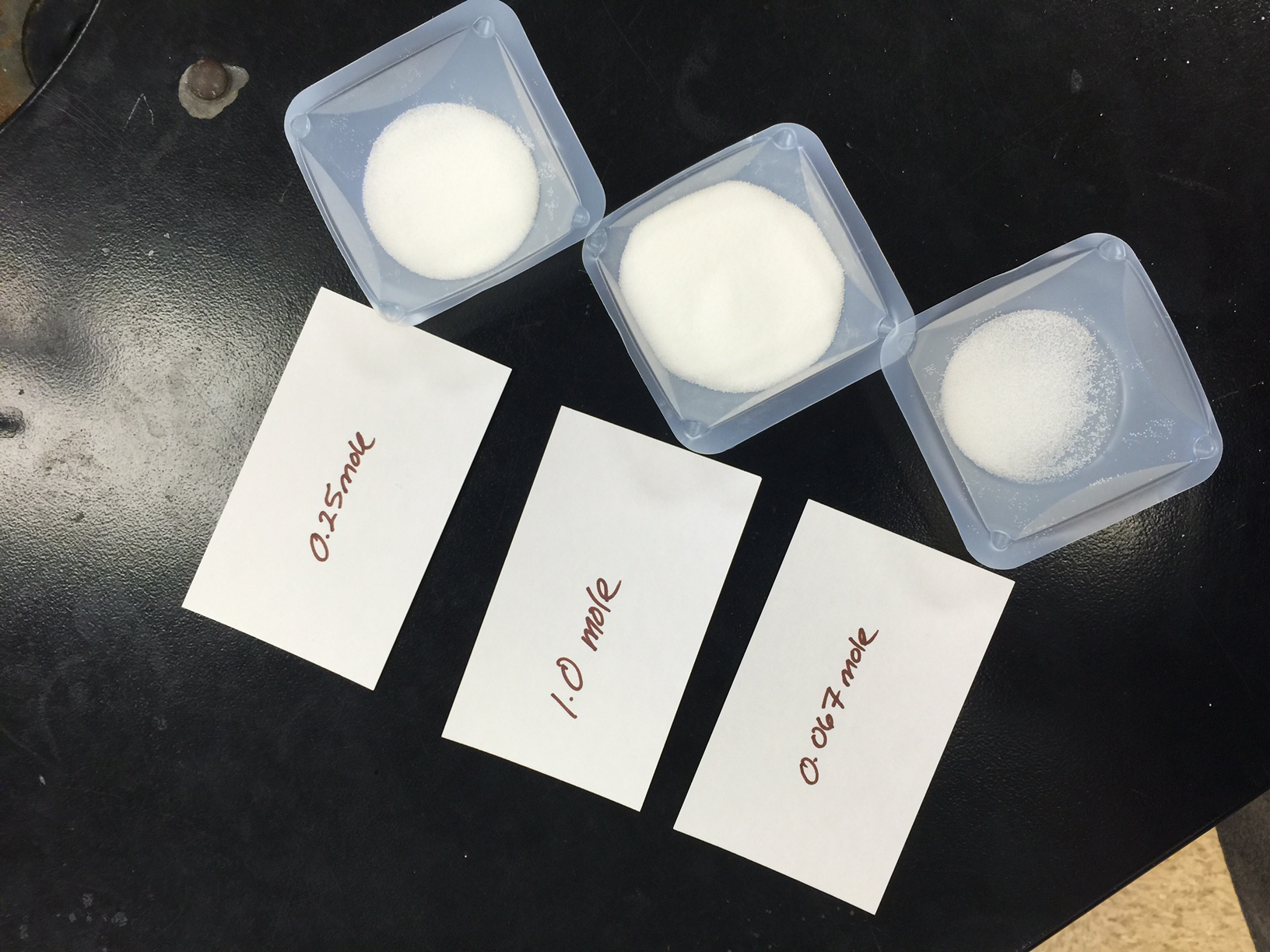When our Chemistry I classes were initially studying the unit of the mole, I wanted to find an activity using real life materials to further relate the mole concept. Initially I thought of using aluminum foil, and found a quality control lab that I liked, so I modified it to include mass measurements and mole conversions. Click here for the complete file download of this activity.
Monthly Archives: September 2015
Mole Madness Activity
What’s in a mole? 6.022 EE 23 atoms/molecules for sure, but what does a mole look like? That depends on the molar mass of a given compound. The goal of generating this particular activity was to have students calculate the molar mass of three common household compounds, sugar, baking soda and sodium chloride, and then to measure out the same number of moles of each compound and visually compare the amounts of each compound to see how much space a given amount of moles occupies.
Values Affirmation & Eliminating Gender Gap
One assignment in our educational psychology course required us to to review a journal article and present it to the class. I chose: http://www.lpl.arizona.edu/~tami/Sun/MRS_files/Science-2010-Miyake-1234-7%20copy.pdf for my review. I have always been fascinated by women’s performance in the math and science fields, so this seemed a logical fit.
Continue reading Values Affirmation & Eliminating Gender Gap
Kinesthetic Chemical Nomenclature Activity
 Traditional methods of practicing chemical nomenclature offer little interactivity among students. I attempted to energize this topic by physically engaging the students with beachballs labeled with chemical compound names that were categorized according to naming type, including Type I & II ionic compounds, as well as binary covalent compounds. Names of each category were written on a particular ball, which was then tossed in the classroom from student to student. Whomever caught the ball then had to properly name the compound where their left thumb landed. The activity continued until all 10 compounds on each ball were named. Student feedback was favorable in that they commented on how “fun” the activity was.
Traditional methods of practicing chemical nomenclature offer little interactivity among students. I attempted to energize this topic by physically engaging the students with beachballs labeled with chemical compound names that were categorized according to naming type, including Type I & II ionic compounds, as well as binary covalent compounds. Names of each category were written on a particular ball, which was then tossed in the classroom from student to student. Whomever caught the ball then had to properly name the compound where their left thumb landed. The activity continued until all 10 compounds on each ball were named. Student feedback was favorable in that they commented on how “fun” the activity was.
